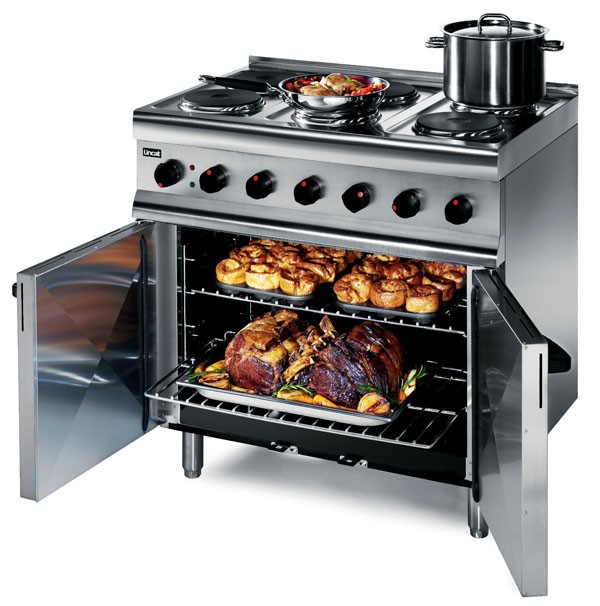
Springtime is often used as a good way to spend some time throwing out anything that isn’t needed any more and giving everything a good clean. In a commercial business, this can be a good way to ensure that all areas of the business are running efficiently and checking that all the equipment is in good working order. Spring cleaning your catering equipment is not always about ‘out with the old and in with the new’ mainly due to the fact that these machines can incur major expense to replace.
In the present situation, with the Coronavirus – Covid-19 epidemic meaning that all restaurants, cafes and other foodservice businesses have had to temporarily close their doors to customers, now could be the perfect time to carry out critical spring cleaning of commercial cooking equipment without disrupting or hindering service.
There are many ways that you can ensure your equipment is up to standard and will be ready for the coming summer when you can once again open your doors to the public.
Why is Looking After Equipment Important?

Commercial catering equipment is designed to a high standard. This is because of the tough environment they will be used in and the high volume of work they need to deal with. It is this quality in materials and manufacturing that demands the high price tag, so it is vital that all your kitchen equipment is well maintained to protect this investment.
Another reason that kitchen equipment must be maintained is that poor maintenance will often lead to more breakdowns and repairs. Not only will this cause disruption to your business, but it will also increase operational costs and eat into profits. You also need to consider the warranty of the equipment, which may not be valid if the unit or machinery is not adequately maintained.
Of course, there may come a time that you need to replace cooking appliances, and it is important to do this as soon as it becomes evident that it can no longer perform its intended function. When the time comes, you need to be sourcing equipment that will give you a long service from trusted catering equipment brands such as Unox, Rational, Valentine, Lincat and Synergy Grill plus many more. This will give you a good return on your investment, and also ensure the equipment working effectively whether that be combination ovens, grills, griddles, fryers or steamers.
What Should Businesses Do?
It is a good idea to spend some time examining all areas of the kitchen to see if there are any improvements that can be made, and of course, performing a deep clean. Springtime can be the perfect opportunity to do this and revise the procedures ready for the busier Summer period.
-
Revisit Manuals

All the equipment you have in the kitchen should come with a manual. This will give you not only the specifications of the equipment, but also the ideal working parameters and maintenance needs.
Even though you may have worked with similar equipment before, or even read the manual initially, there is no harm in refreshing your memory. There may even be parts of the manual that you didn’t read the first time that will be useful.
If the manual is not available, then contacting your equipment supplier may enable you to get another copy either in print or online. It is a good idea to always have the manual available in case operational information is needed.
-
Training
Training is a major part of an effective working environment, and nowhere more so than a catering business. Of course, there are the essential courses that everyone who works in the kitchen must take, but others include training on particular equipment or ways of working.
It is a good idea to take a look at these procedures once a year at least to ensure that they are still relevant and being carried out. For example, there may be a new piece of equipment that was installed after the procedures were created that needs additional training or maintenance. You may also find that certain cleaning procedures have been missed or are less stringent than when they were first introduced.
Take some time to revisit the procedures and change anything that is no longer relevant. You should also conduct refresher training with the staff before re-opening so that they are all up to speed with any changes.
-
Equipment Cleaning

If your business doesn’t use a checklist, then it is vital that you put one in place. Not only will it help you to see what is being cleaned and when it will also act as vital records for any health inspections.
If you are looking to implement a cleaning record, then you should also complete refresher training on your staff at the same time. This will ensure that they are all aware of what is required and are able to use and put into practise any new advice.
-
Deep Cleaning
It is important to carry out an in-depth clean regularly to ensure all areas of the kitchen are safe. This doesn’t need to be completed every day, but it should form part of the overall cleaning procedure.
An in-depth clean goes beyond the usual cleaning requirements because every area of the kitchen must be inspected and cleaned. This includes behind storage areas, inside cupboards, and every small part of the kitchen.
A record should be kept of these deep cleans along with any problems that were discovered as a result such as damage or mould. Any problems must be rectified as soon as possible.
-
Inspections

All equipment and machinery must be regularly inspected to ensure it is still working effectively. Refrigeration units must have door seals checked, temperature readings measured to ensure they are safe, and vents cleaned. Controls should be checked on all equipment to see if they are working correctly and that no damage has been done. Vents, fans and cooking hoods also need to be inspected for wear and to ensure they are grease and dirt free.
If there are any areas of the kitchen that need attention, then this must be rectified as soon as possible. This is especially true of any equipment that is still in warranty. It is important that you don’t try to repair any equipment yourself, always get a professional to carry out repairs.
Taking the time to give your business a spring clean will ensure your kitchen continues to be efficient and that any issues are picked up early and rectified, saving you time and money in the future.
